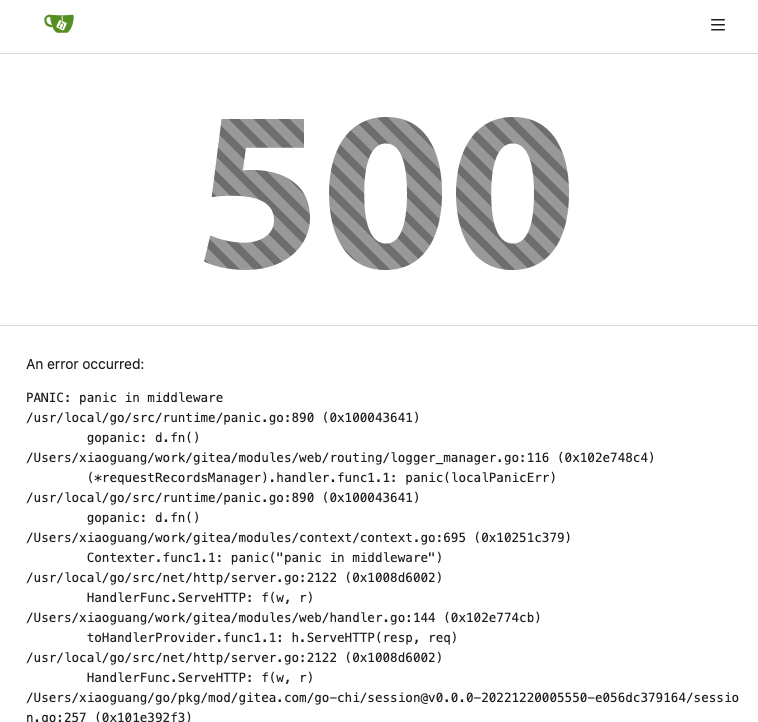mirror of
https://github.com/go-gitea/gitea
synced 2024-11-09 03:34:24 +00:00
Partially for #24457 Major changes: 1. The old `signedUserNameStringPointerKey` is quite hacky, use `ctx.Data[SignedUser]` instead 2. Move duplicate code from `Contexter` to `CommonTemplateContextData` 3. Remove incorrect copying&pasting code `ctx.Data["Err_Password"] = true` in API handlers 4. Use one unique `RenderPanicErrorPage` for panic error page rendering 5. Move `stripSlashesMiddleware` to be the first middleware 6. Install global panic recovery handler, it works for both `install` and `web` 7. Make `500.tmpl` only depend minimal template functions/variables, avoid triggering new panics Screenshot: <details>  </details>
87 lines
2.9 KiB
Go
87 lines
2.9 KiB
Go
// Copyright 2020 The Gitea Authors. All rights reserved.
|
|
// SPDX-License-Identifier: MIT
|
|
|
|
package context
|
|
|
|
import (
|
|
"context"
|
|
"fmt"
|
|
"net/http"
|
|
"time"
|
|
|
|
"code.gitea.io/gitea/modules/graceful"
|
|
"code.gitea.io/gitea/modules/process"
|
|
"code.gitea.io/gitea/modules/web/middleware"
|
|
)
|
|
|
|
// PrivateContext represents a context for private routes
|
|
type PrivateContext struct {
|
|
*Context
|
|
Override context.Context
|
|
}
|
|
|
|
// Deadline is part of the interface for context.Context and we pass this to the request context
|
|
func (ctx *PrivateContext) Deadline() (deadline time.Time, ok bool) {
|
|
if ctx.Override != nil {
|
|
return ctx.Override.Deadline()
|
|
}
|
|
return ctx.Req.Context().Deadline()
|
|
}
|
|
|
|
// Done is part of the interface for context.Context and we pass this to the request context
|
|
func (ctx *PrivateContext) Done() <-chan struct{} {
|
|
if ctx.Override != nil {
|
|
return ctx.Override.Done()
|
|
}
|
|
return ctx.Req.Context().Done()
|
|
}
|
|
|
|
// Err is part of the interface for context.Context and we pass this to the request context
|
|
func (ctx *PrivateContext) Err() error {
|
|
if ctx.Override != nil {
|
|
return ctx.Override.Err()
|
|
}
|
|
return ctx.Req.Context().Err()
|
|
}
|
|
|
|
var privateContextKey interface{} = "default_private_context"
|
|
|
|
// WithPrivateContext set up private context in request
|
|
func WithPrivateContext(req *http.Request, ctx *PrivateContext) *http.Request {
|
|
return req.WithContext(context.WithValue(req.Context(), privateContextKey, ctx))
|
|
}
|
|
|
|
// GetPrivateContext returns a context for Private routes
|
|
func GetPrivateContext(req *http.Request) *PrivateContext {
|
|
return req.Context().Value(privateContextKey).(*PrivateContext)
|
|
}
|
|
|
|
// PrivateContexter returns apicontext as middleware
|
|
func PrivateContexter() func(http.Handler) http.Handler {
|
|
return func(next http.Handler) http.Handler {
|
|
return http.HandlerFunc(func(w http.ResponseWriter, req *http.Request) {
|
|
ctx := &PrivateContext{
|
|
Context: &Context{
|
|
Resp: NewResponse(w),
|
|
Data: middleware.GetContextData(req.Context()),
|
|
},
|
|
}
|
|
defer ctx.Close()
|
|
|
|
ctx.Req = WithPrivateContext(req, ctx)
|
|
ctx.Data["Context"] = ctx
|
|
next.ServeHTTP(ctx.Resp, ctx.Req)
|
|
})
|
|
}
|
|
}
|
|
|
|
// OverrideContext overrides the underlying request context for Done() etc.
|
|
// This function should be used when there is a need for work to continue even if the request has been cancelled.
|
|
// Primarily this affects hook/post-receive and hook/proc-receive both of which need to continue working even if
|
|
// the underlying request has timed out from the ssh/http push
|
|
func OverrideContext(ctx *PrivateContext) (cancel context.CancelFunc) {
|
|
// We now need to override the request context as the base for our work because even if the request is cancelled we have to continue this work
|
|
ctx.Override, _, cancel = process.GetManager().AddTypedContext(graceful.GetManager().HammerContext(), fmt.Sprintf("PrivateContext: %s", ctx.Req.RequestURI), process.RequestProcessType, true)
|
|
return cancel
|
|
}
|